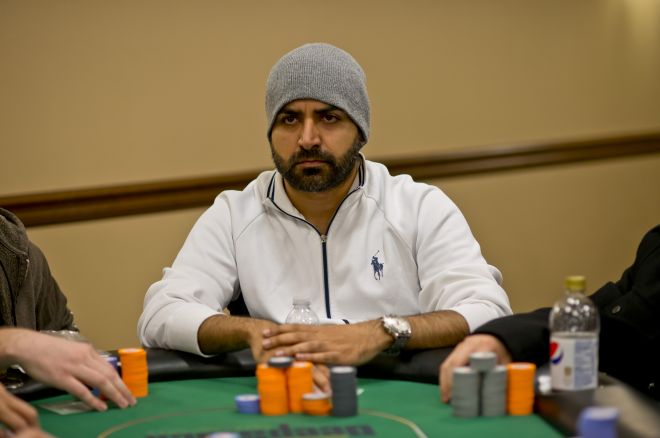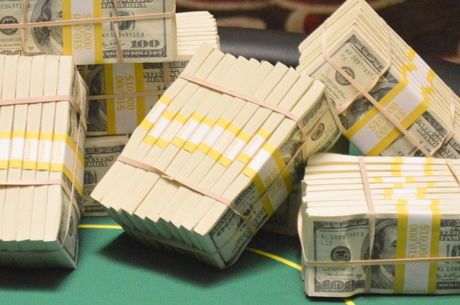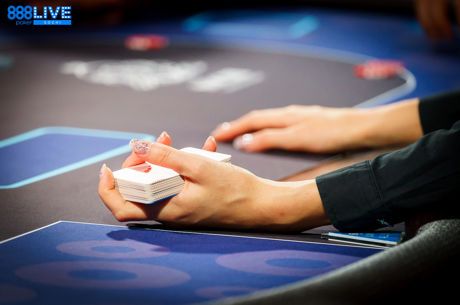Strategy Vault: Turning Your Hand Into a Bluff with Vinny Pahuja

Digging deep into the PokerNews strategy archives can lead to a buried treasure, so we'll be unearthing a few gems for your viewing pleasure. In this edition of the Strategy Vault series, we're resurfacing a piece from Vinny Pahuja.
First published in Feburary 2010, this piece is originally from our "Elite Strategy" series that featured the wisdom of some of poker��s top players as they provide viewers with a look at what goes on inside the heads of the game��s elite when they are looking to build their stacks. In this edition, Pahuja discusses turning your hand into a bluff in no-limit hold'em.
The Player: Vinny Pahuja
After spending five years at Lehman Brothers, one of the world��s premier investment banks, Pahuja decided to leave in 2007 because he was tired of the corporate grind and seriously questioned the viability of the markets he was involved in. A regular in the New York City underground cash games since 2004, Pahuja decided to devote more time to his newly found passion: poker tournaments.
Since making the change, Pahuja has earned nearly $1.4 million playing the live tournament circuit and pocketed over $125,000 in four different years. His largest single score came in June 2008 when Pahuja placed second in the Borgata Summer Poker Open Championship Event for $289,800.
The Game: No Limit Hold��em
Turning Your Hand Into a Bluff
With poker being such a situational game, it is difficult to say with exact certainty that a particular play is correct, incorrect, +EV or �CEV. Turning a made hand into a bluff is a concept that is both underutilized and misunderstood by novices and experienced players alike. It involves taking a hand that, under normal circumstances, has "showdown value," but for whatever reason, no longer does and thus, creates a situation where bluffing to win the pot becomes the optimal play.
Here is an example of how this play could be used:
Here's an example from live play. In the 2009 Foxwoods World Poker Finals World Poker Tour $10,000 Championship Event, a player opened to 300 at 50/100 blinds in middle position with a starting stack of 30,000. I called with a similar stack in the cutoff position with the 6?4?. Heads up, the flop came 10?7?4?. The preflop aggressor led into me for 450, and I decided to call in position with bottom pair because (a) my pair of fours could easily have been the best hand, (b) I had backdoor straight and flush draws, and (c) I could outplay my opponent depending on what came out on the turn and river. The turn card was the 6?, giving me two pair, and my opponent now led for 1,000 into a 1,500 pot.
At this point, I was pretty certain that he had an over pair, and there was no reason for me to believe my two pair was trailing. Even if he was bluffing, there were just too many river cards that would kill my action, and we all know how vulnerable bottom two pair can be. I raised to 3,300, and my opponent quickly called. The river was the 10?, counterfeiting my hand. While I was disgusted to see this card, my opponent seemed equally squeamish and quickly checked. Many players in this situation make the mistake of giving up on their hand, knowing that their opponent now almost certainly has the best hand.
Whenever you are faced with a river decision for a large pot, take your time. Reevaluate your action and your opponent��s action on every street. What type of story is he or she trying to tell? What story are you trying to tell? In every form of poker, we are telling a story based on our betting actions. Your "line" must make sense to a competent player, otherwise your bluffs will receive no credit.
After replaying the hand in my head, I was certain my opponent had an over pair and on the river held a bigger two pair than I did. If I checked behind and surrendered, I would most certainly lose the pot. So I took a hand (two pair) that would normally have showdown value and turned it into a bluff. I bet 5,200 on the river and my opponent thought for about 30 seconds, said ��nice river�� and mucked two jacks face up on the table.
In poker, especially in tournaments, you have to find ways to manufacture pots that you don��t necessarily deserve. Turning your hand into a bluff, when used in the right situation against the right opponent, can be an effective tool in your arsenal to win pots with the worst hand.
This article was originally published on Feb. 3, 2010.
To stay on top of the poker world, follow us on Twitter and like us on Facebook.








